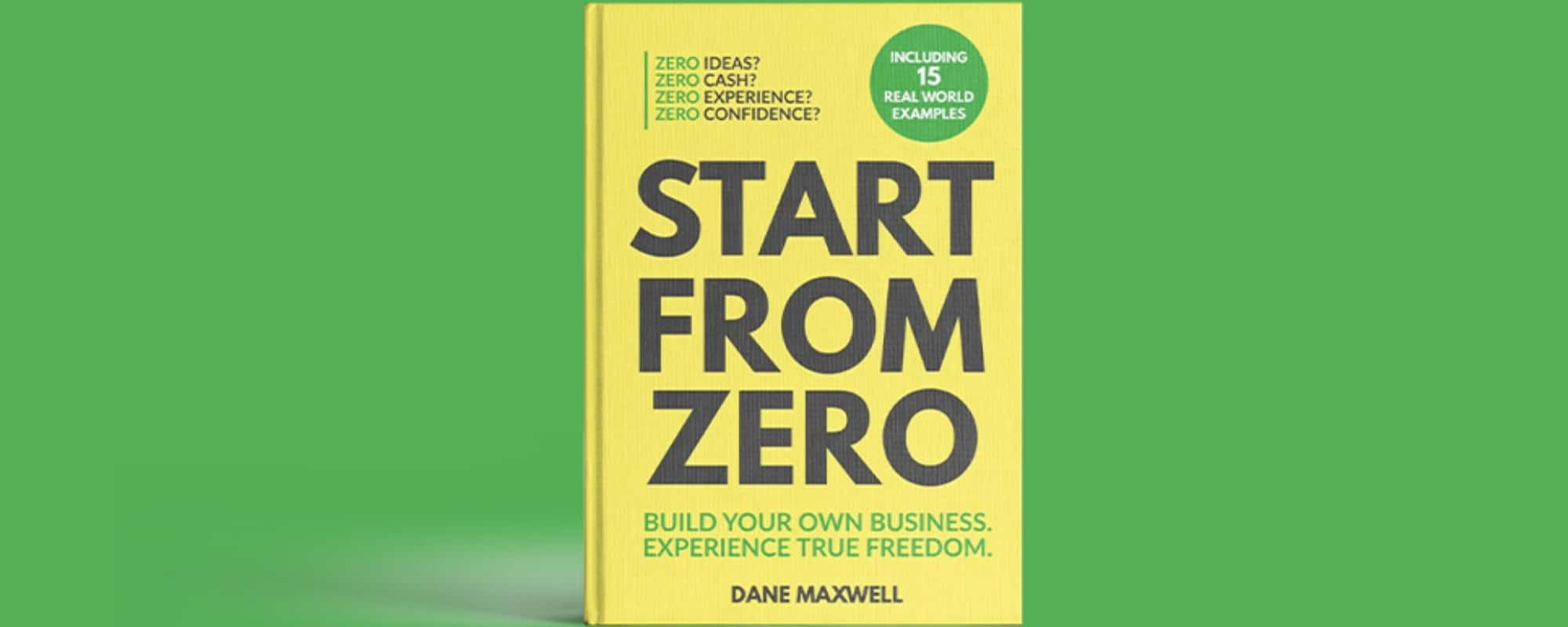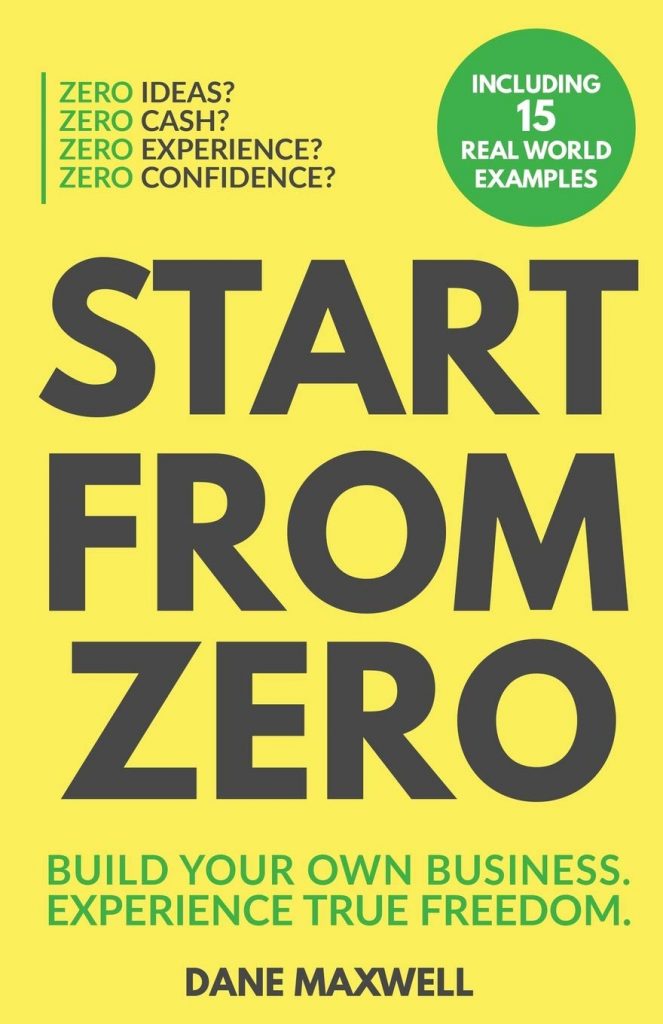
Book Reviews
Money at 30: “Start from Zero” Book Review

Something I often forget about myself is that I am technically a business owner. However, in my mind, there’s a big difference between working for yourself and being an actual entrepreneur. With that in mind, I don’t often look to books about business or entrepreneurdom (if that’s even a word) as I didn’t really think they’d apply to me. Yet, when I was recently offered the chance to check out the new book Start from Zero: Build Your Own Business. Experience True Freedom by author Dane Maxwell, I was definitely curious (and not just because quarantine days get boring). Sure enough, after reading the book for myself, I came away with some new perspective and a greater interest in the entrepreneurial life.
Note: To be clear, I was sent a digital copy of this book for review, but was not otherwise compensated. The opinions expressed are purely my own.
As the name implies, throughout Start from Zero, Maxwell offers a playbook for building a profitable business regardless of expertise, capital, or other perceived hindrances — including a lack of ideas. While these steps tend to lend themselves to software as a service (SaaS) businesses, as you’ll see, they can be applied to a number of verticals. Moreover, even if you don’t end up starting a business of your own, Maxwell makes a compelling case for how thinking like an entrepreneur can benefit you in other ways.
Personally, my favorite section of Start from Zero was one in which Maxwell describes four “buildable brains”: The Surveyor, The Tiller, The Planter, and The Gardener. This was also where the C.P.S.O. (standing for “customer, pain, solution, offer”) framework is introduced, setting the stage for much more to come. Shifting to a bit earlier in the book, I also found myself truly intrigued by a thought Maxwell shared regarding the belief that being an employee is “safe” while being an entrepreneur is “risky.” Even in what is likely the shortest chapter in the book at just over three pages, the author does an impressive job of not only dismantling this notion but in fact proving the opposite may be true.
Funny enough, immediately after that chapter comes something I need to note. Around chapter four or so, the book takes a bit of a left turn. Instead of talking about business itself, Maxwell dedicates several chapters to the process of determining what you truly want from life and how to make adjustments in order to achieve your goals. To do this, he recommends a series of tasks that to some may seem a bit (for lack of a better term) hokey. This isn’t to say that there aren’t elements of these exercises that can be valuable, as the overall message is both sound and important. However, I can imagine that activities that start with you placing your hand on your heart and saying “hello, heart that I love” might not appeal to all readers. Of course, if this does sound like a turn off to you, you’ll be glad to know that this is a relatively small part of the book. In fact, if you skim or skip ahead to chapter 10, you’ll get back into the business side of things — although these themes may make a couple of subsequent cameos. And while we’re talking minor criticisms, I’ll also mention that the chapter that doubles as an apology to Ramit Sethi seemed quite random and appeared as more of an ass-covering measure than anything.
Back to the positives: as promised on the cover, the book also features more than a dozen case studies from business owners who have previously worked with Maxwell. Once again, many of those included are SaaS companies, although there are some notable exceptions to that theme that still feel right at home in this roundup. For each entrepreneur, Maxwell breaks down their business into C.P.S.O. format introduced earlier in the book, making for a very digestible and interesting penultimate section. Well, actually, I’d go ahead and call this portion the conclusion as the only thing after is a one-page sign-off, a few additional resource notes, some acknowledgments, and that’s about it.
Although Start from Zero is over 300-pages in length, it certainly doesn’t feel like it as the book flies by. Of course that may be partially due to the work’s formatting that not only places a space after each paragraph but also often makes use of single-sentence stanzas. This is definitely different from most books, yet I felt it actually worked well for this type of material and managed to compliment the concept.
Having not previously read many business or entrepreneurial-minded books, I can’t really say how Start from Zero: Build Your Own Business. Experience True Freedom compares or point to what new revelations it has to offer. What I can say is that, overall, I found a lot to like about and was left with plenty of thoughts on how to apply some of the lessons to my own life. Additionally, while this may seem like a back-handed compliment, considering the emphasis on paid courses as both a resource and income stream for entrepreneurs, I was impressed that Maxwell didn’t seem to push his own products too aggressively in the book — this is to say that there’s no instance of “but if you really want to master this…” Instead, all mentions of his site and community felt natural and were offered as an additional resource, not a tease for paywalled content. Therefore, if you’re a newbie like me — and starting from zero, as it were — I’d say that Start from Zero is worth a read.








